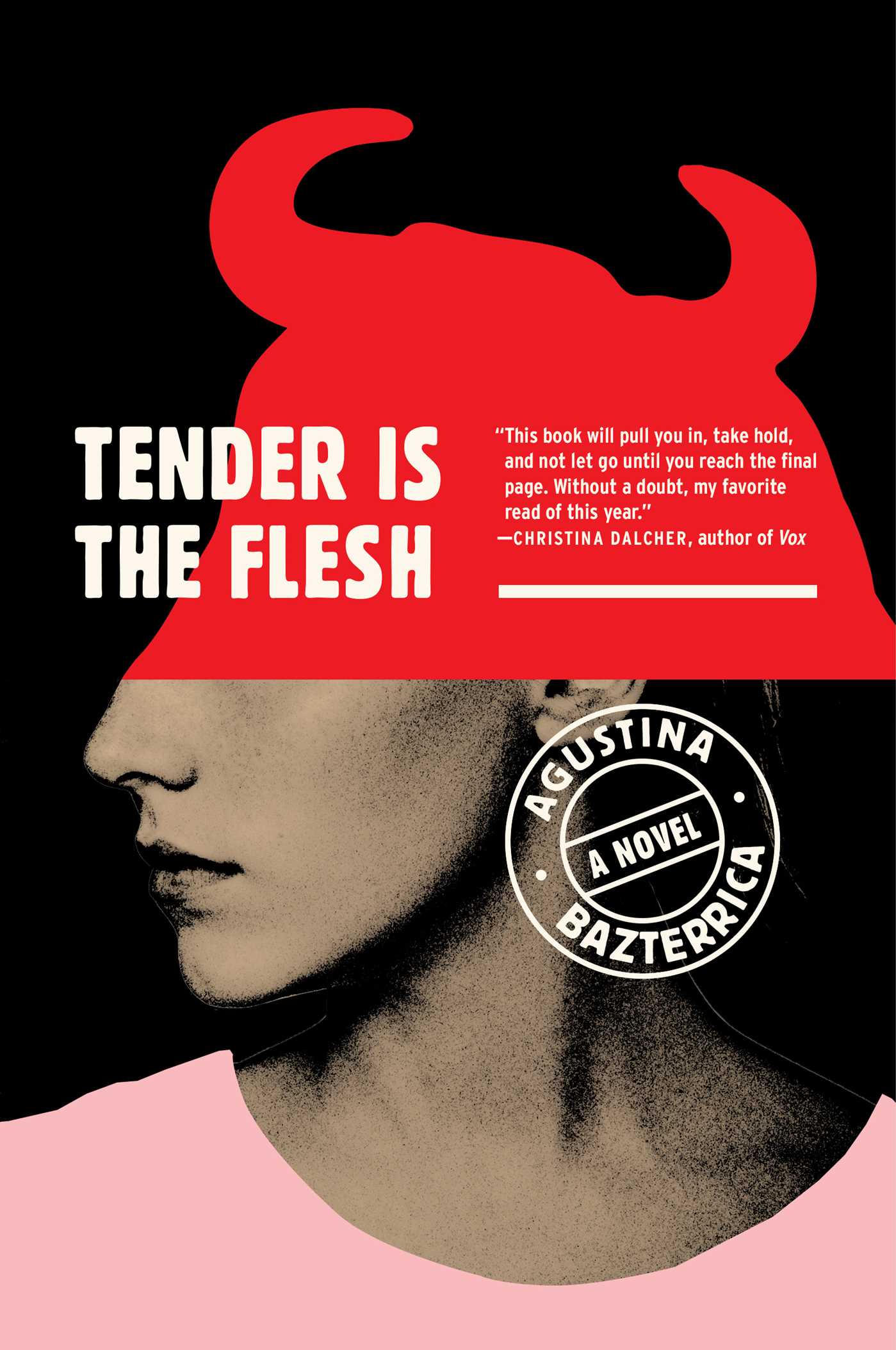tender is the flesh
agustina bazterrica
5:22 pm saturday sept 9 2023

purchase from bookshop.org
I’ll admit, when I purchased Tender is the Flesh, I had no clue what it was about — only that a lot of people were talking about it. I had been forewarned that there was cannibalism and that it was very, very gruesome. But I’m a lover of dark fiction, and had no qualms with that going in. But I certainly did have qualms going out.
Before I continue, I am fully aware this novel was not originally written in English. I desperately wish I could read the original — because as it is, it’s hard to tell if some of my problems with the writing are due to the author’s choices or if they’re the result of translation. Plus, I should let you know there won’t be quotes from the book in this review, and I won’t be able to reference the text back; I’ve already donated the book to a little library down the street.
Tender is the Flesh presents itself as a metaphor for capitalism. Through the allegory of a dystopian near-future cannibalism industry, the novel attempts to unpack the gruesome way capitalism devours us. This novel is meant to be saying, look at how we devalue human lives, exploit each other, consume each other.
Unfortunately, I found it hard to consider the (true and important) meaning behind the novel due to the writing style. Exposition was heavy-handed, and so was its metaphor. Worse, characterization of our narrator was nearly all tell and no show, spelling out his full thought process, emotions, etcetera at all times. It became somewhat tedious to read, as though the author did not trust her reader to come to conclusions through the context clues.
I will say that the narrator, Marcos, was an interesting character on his own. While disagreeing with the cannibalism industry, he still worked within it because he knew nothing else, and even kept a woman as a sexual slave in order to provide him and his near-infertile wife with a child. Marcos is an interesting character, and I think the right character to explore this world through, and I commend the author for that. I do enjoy a morally reprehensible, complicated main character.
The thing that bothered me most about the book, however, was just how gruesome it got. I was often distracted by the metaphor, plot, and characterization due to my pure disgust. While I understand that much of my disgust was the author’s entire intention — we should be disgusted by what is happening, and we should be horrified by the characters in the novel’s lack of (outward) disgust — I still had trouble moving past it. Where the book’s torture-porn levels of body horror became too much for me was the sexual violence; practically every male character, including our narrator, in some way participates in rape, mutilation, and manipulation of women in a way that I think is in some ways focused on too much.
Perhaps much of my issues with the novel were my own personal tastes. I understand that much of it was intentional by the author to make me uncomfortable, and I have no problem feeling uncomfortable while reading typically. Unfortunately, my level of discomfort just became too much for me to really be able to grasp the true intention of the book, that being the metaphor for capitalism. Many others have loved this book, and I by no means think no one should read this, or even that it’s awful — only that it is not great, and certainly wasn’t for me.
-- aryll